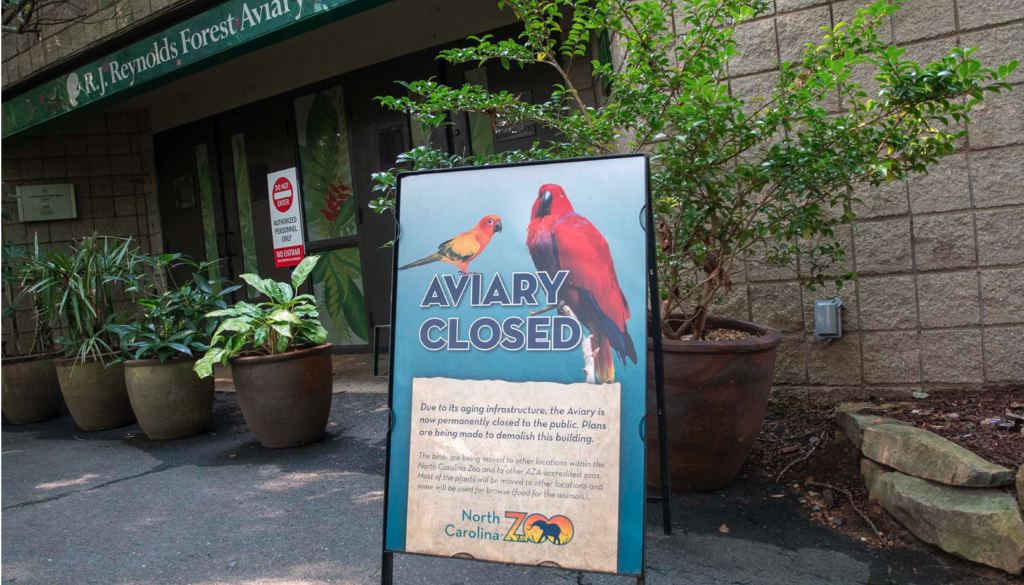NC Zoo working to secure funding to rebuild aviary
ASHEBORO — The Aviary at the North Carolina Zoo is set to be demolished, but the Zoo is working on securing funds and putting together plans to rebuild.
With its 93 species of birds, hundreds of tropical plants, and an environment that mimics the tropical rainforest, the Aviary has been a guest favorite since it first opened in 1982.
In January 2022, the Zoo announced that the Aviary would be closing due to a potential threat of Avian Flu, leaving many guests with the impression that this closure would be temporary. However, during the closure, a team of engineers was brought in to conduct an inspection of the building, and their findings were not promising.
“The aviary is a very humid environment; it’s a very rough environment,” said Debbie Zombeck, the chief curator of birds at the N.C. Zoo and the aviary’s supervisor, in an interview last year.
After 40 years, it seems that the building has reached the end of its lifecycle.
Engineers found drainage, foundation, and HVAC issues and ultimately concluded that renovations would not be financially viable for the Zoo. Fears surrounding aviation flu at the time, coupled with the engineers’ assessment, led to the unpopular decision to permanently close and take down the habitat in April 2022.
Because the response from the public was overwhelmingly negative, the Zoo administration and the N.C. Department of Natural and Cultural Resources quickly began working secure funding to both demolish the old aviary and, in the future, rebuild.
The Zoo has hired REI Engineers to work on demolition drawings.
“Once the demolition drawings are complete, Zoo staff will work next on the bid process for a contractor to remove the building,” said Diane Villa, Director of Communications and Marketing.
In March 2023, Governor Roy Cooper introduced his 2023-25 budget proposal, which includes $60 million for the “Zoo Aviary replacement,” but the budget has not been passed.
“The aviary has been an integral part of the N.C. Zoo for decades,” said Senator David Craven, Jr. “It was a unique experience that provided an experience that provided visitors an up-close-and-personal look at birds and tropical plants.
While no timeline has been announced, sources familiar with the Zoo say a new aviary may not open until at least 2030.
“Should the funding come through, the new aviary design process will begin,” said Villa. “It will take time, noting that the North Carolina Zoo is in the process of building the Asia region as a priority, but staff are excited to begin establishing criteria for the birds and the guest experience. As it is early in the planning and funding phases, it is difficult to set a timeline for when the new aviary will be completed.”
 Twitter
Twitter Facebook
Facebook Instagram
Instagram


